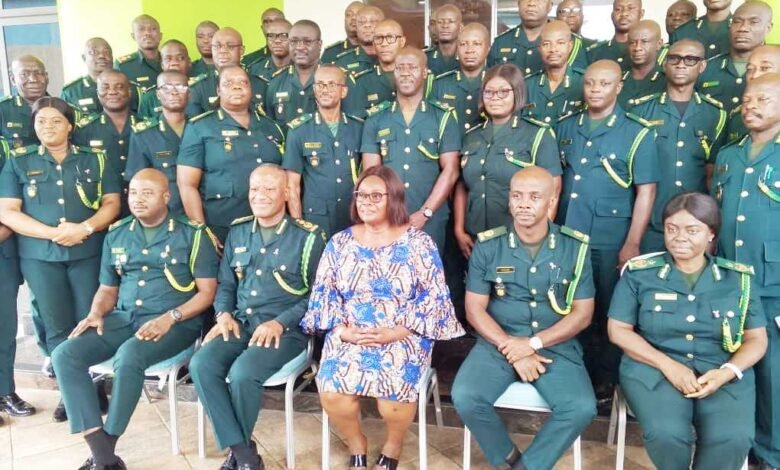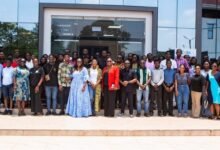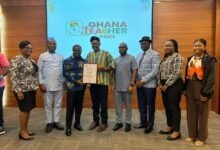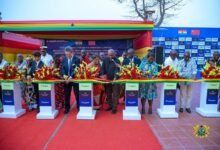GIS urged to collaborate in protecting frontiers

The Deputy Minister for the Interior, Naana Eyiah Quansah, has urged the Ghana Immigration Service (GIS) to collaborate with other security agencies to protect the country’s borders and safeguard its territorial integrity ahead of the upcoming elections.
She emphasised that security was a collective responsibility and cannot be left to a single institution.
“In today’s complex and ever-changing security landscape, it is crucial for the GIS to partner with other agencies to ensure the safety of the country,” he said.
Speaking at the opening of a three-day conference organised by the GIS in Koforidua on Friday for its management and regional commanders, the Deputy Minister highlighted the importance of intensifying efforts to protect Ghana’s borders, particularly in light of the growing threats of terrorism and violent extremism in Sub-Saharan Africa, often fuelled by political instability.
The conference, themed “Elections and national security: The operations of the Ghana Immigration Service,” focused on discussing GIS’s role in the upcoming elections, assessing its achievements and challenges, and planning strategically for the future.
She stressed that any weaknesses in border management could be exploited by terrorists and extremists during the elections, posing serious risks to national security.
She encouraged the GIS to remain vigilant, proactive, and collaborate closely with other stakeholders to counter emerging threats.
Over the years, the GIS had strengthened its partnerships with key agencies to bolster border security, reduce irregular migration, prevent terrorism, and combat transnational organised crime, she noted.
The minister urged the GIS to continue enhancing these collaborations, noting that effective border management was crucial not only for security but also for facilitating trade and development.
She reassured the public that the government was committed to ensuring peaceful elections, stating that resources have been provided to key stakeholders, including the GIS, to help them effectively carry out their duties.
“The government has equipped the GIS with the necessary human resources and logistics to deliver on its mandate during the election period,” she said.
The Deputy Minister also praised the proactive measures implemented by the GIS to prevent the infiltration of undesirable elements into the country.
She emphasized that the government would continue to support the GIS and other border management institutions in strengthening systems and scaling up initiatives to safeguard the country’s territorial integrity.
She called on all stakeholders to contribute their efforts toward ensuring free, fair, and credible elections.
The Comptroller-General of the GIS, Kwame Asuah Takyi, also spoke at the conference, noting that the 2024 elections pose unique challenges, particularly concerning national security.
He stressed the need for the GIS to remain vigilant and prepared to mitigate potential risks at the borders, ensuring a secure environment for the election process.
Mr Takyi acknowledged the instability in the Sahel region and West Africa, where violent incidents have increased in frequency and complexity.
He emphasized the importance of the GIS enhancing its border management strategies while facilitating the movement of people, goods, and services.
The conference, he concluded, would help the GIS to develop solutions and strategies to position itself as a forward-thinking and responsive institution during the elections
FROM AMA TEKYIWAA AMPADU AGYEMAN, KOFORIDUA







